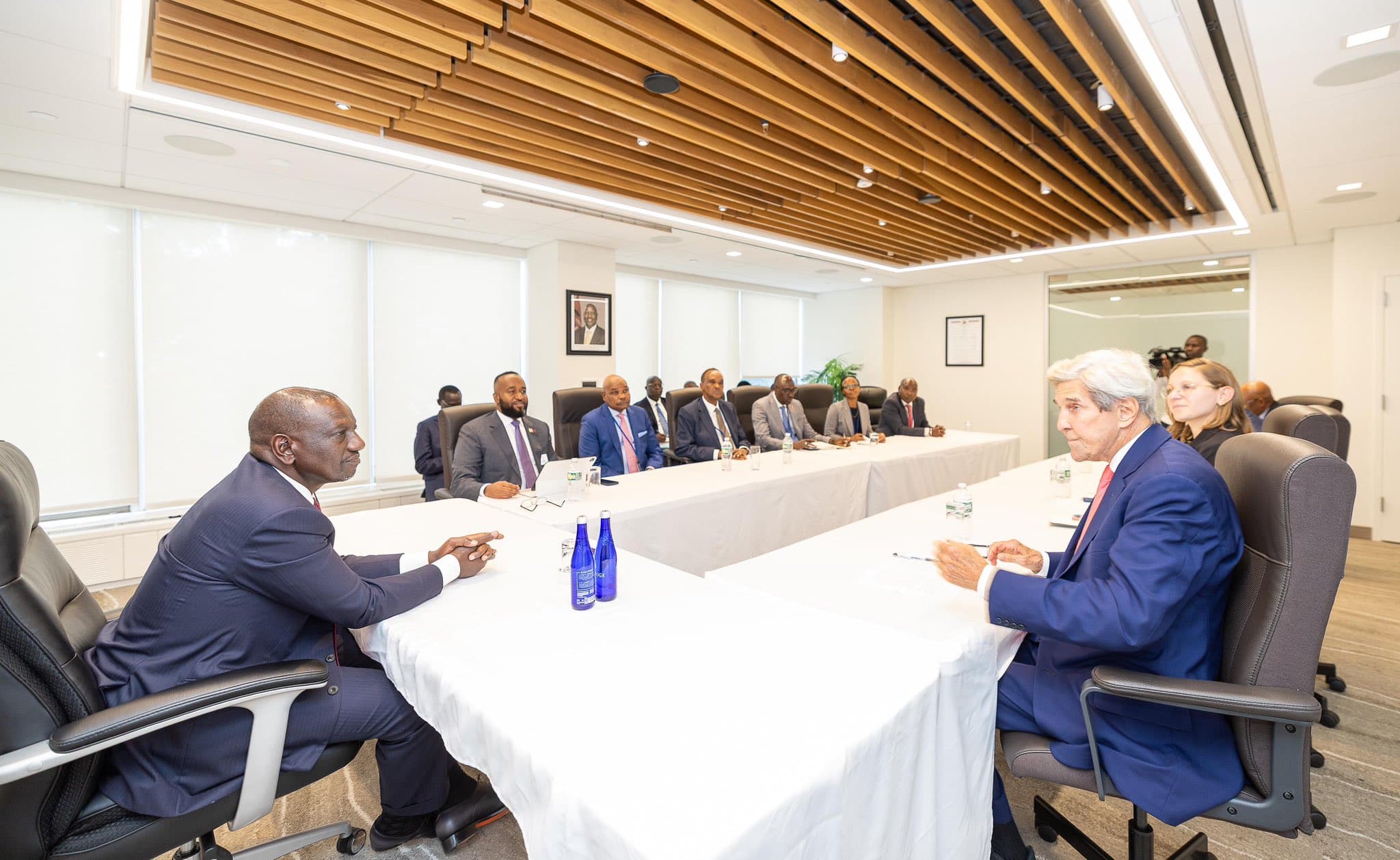We're loading the full news article for you. This includes the article content, images, author information, and related articles.
President William Ruto has officially confirmed that Kenya will host the 11th Our Ocean Conference (OOC) in June 2026 at the coast, under the theme “Our Ocean, Our Heritage, Our Future.”

Nairobi, Kenya — September 25, 2025
President William Ruto has officially confirmed that Kenya will host the 11th Our Ocean Conference (OOC) in June 2026 at the coast, under the theme “Our Ocean, Our Heritage, Our Future.” During a meeting with former U.S. Secretary of State John Kerry in New York, Ruto said the event will be a historic milestone for the continent.
Ruto hailed the fact that this will be the first time the OOC is hosted in Africa, emphasizing that the continent has long been underrepresented in global ocean governance.
He noted that during his meeting with John Kerry—founder of the Our Ocean Conference—Kerry expressed support for Kenya’s bid and endorsed the country as a suitable host.
Kenya’s government and relevant agencies are mobilizing to showcase Africa’s priorities in marine protection, sustainable blue economy, climate resilience, maritime security, fisheries, pollution control, and ocean financing.
The Our Ocean Conference, inaugurated in 2014 by the U.S. Department of State and John Kerry, brings together governments, NGOs, academia, and businesses to advance ocean sustainability globally.
Over its first ten editions, the conference has generated more than 2,600 commitments valued at over USD 140–160 billion, spanning marine protected areas, blue economy investments, pollution reduction, and sustainable use of marine resources.
Hosting OOC 2026 in Kenya (and Africa) gives the continent a stronger platform to articulate its own ocean challenges and priorities—such as coastal erosion, marine biodiversity loss, illegal fishing, plastic pollution, and climate change impacts on seas.
It is also seen as an opportunity to attract global investment, technical partnerships, and policy support toward Africa’s “blue economy” agenda.
Logistics & infrastructure: Hosting a global summit requires secure venues, lodging, transport, communication systems, and hospitality capacity, especially along the coast.
Cross-agency coordination: Multiple ministries (Environment, Fisheries, Tourism, Transport) plus county governments must align their roles, budget commitments, and responsibilities.
Deliverable expectations: Attendees and global stakeholders will expect more than pledges—concrete plans, follow-up mechanisms, financing commitments, and accountability.
Regional balance: Kenya must ensure that Africa’s varied coastal interests—from West, East, Southern Africa—are fairly represented and that host bias is avoided.
Sustainability beyond the conference: Maintaining momentum post-event is critical so that commitments translate to on-the-ground action, not fade into rhetoric.
Keep the conversation in one place—threads here stay linked to the story and in the forums.
Sign in to start a discussion
Start a conversation about this story and keep it linked here.
Other hot threads
E-sports and Gaming Community in Kenya
Active 9 months ago
The Role of Technology in Modern Agriculture (AgriTech)
Active 9 months ago
Popular Recreational Activities Across Counties
Active 9 months ago
Investing in Youth Sports Development Programs
Active 9 months ago